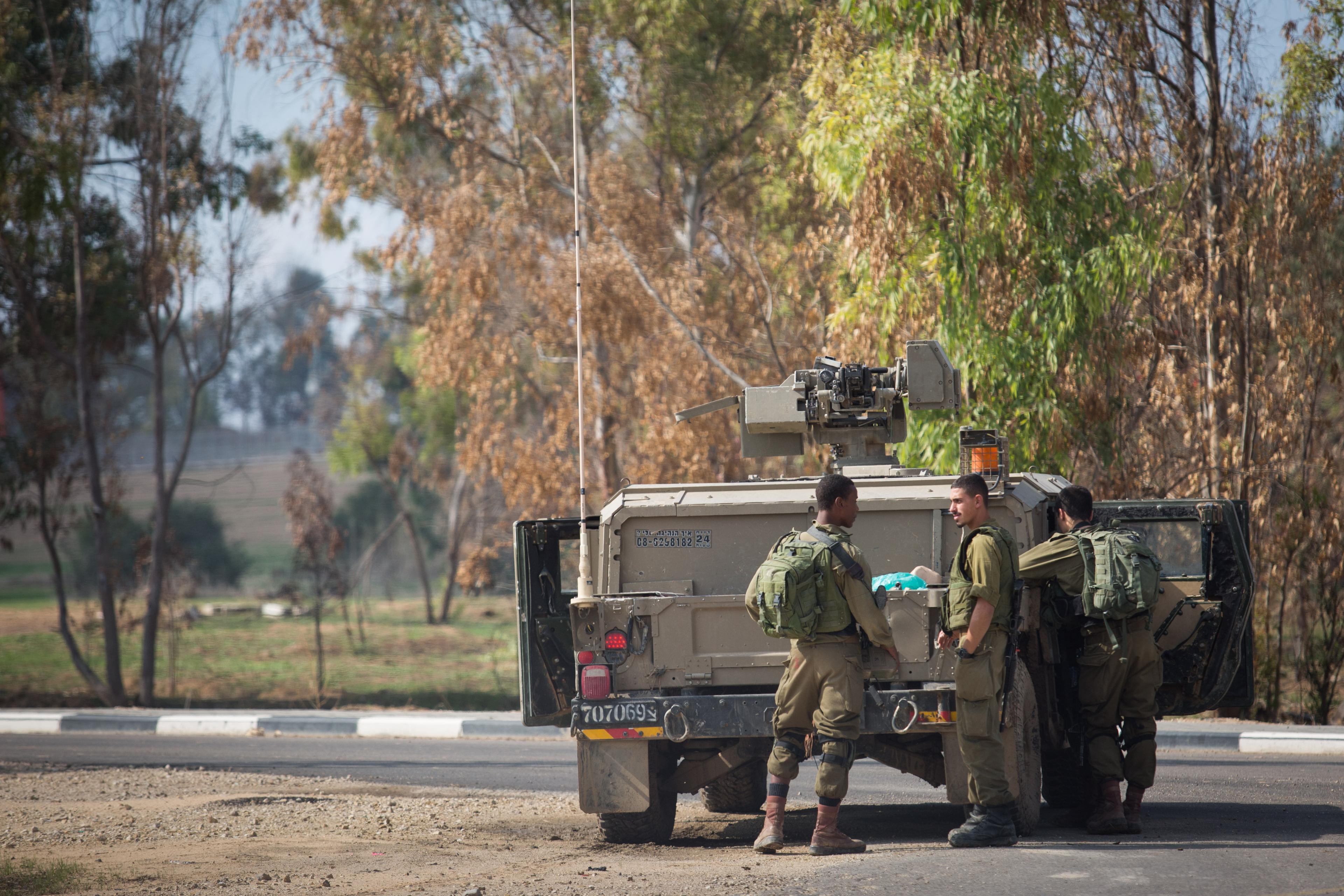Magnificent
A tracker’s last stand: The unyielding valor of IDF warrant officer Ibrahim Kharuba
In a nation too often defined by its fractures, Kharuba’s story is a quiet triumph of unity. A Bedouin Muslim, he fought not just for his comrades but for the idea of Israel—a coexistence forged in action, not words. The destruction at Nahal Oz—charred walls and shattered lives—stands in stark contrast to his legacy: a man who used his body as a shield, his voice as a plea, and his life as a bridge.

On the morning of October 7, 2023, as the sun rose over the Gaza border, Warrant Officer Ibrahim Kharuba stood at the edge of chaos. A 39-year-old Bedouin Muslim from the northern town of Maghar, he was a tracker in the IDF’s Gaza Division—a man whose life was shaped by the rugged terrain he patrolled and the values he carried from his family. That day, at the Nahal Oz outpost, just 850 meters from Gaza, those values would forge a legacy of courage that echoes through Israel.
When Hamas terrorists breached the base in a savage onslaught, Kharuba was among the few armed defenders on duty, the skeletal staff stretched thin by the holiday calm that had preceded the storm. The attack was relentless—grenades, gunfire, and a tide of assailants flooding the perimeter. Fifty-three soldiers would fall that day, ten would be dragged into captivity, but amid the carnage, Kharuba became a bulwark of hope.
Stationed at the entrance to the command center, he shielded a group of female lookouts—young women tasked with watching the border, now unarmed and trapped. The terrorists, recognizing his Arab heritage, perhaps in his voice or bearing, called out to him in their shared tongue: Surrender. His answer was a defiant “Never.” It was not just a refusal; it was a declaration of who he was—a soldier, a protector, a man of unyielding resolve.
Kharuba fought with ferocity, a lone figure against a swarm. Reports credit him with felling seventeen terrorists, his bullets carving a line of defense as he held the door. When another officer fell wounded, Kharuba dragged him to safety, shouting to the women inside, “Lock the door! Commander, we’re at war!” He returned to the fray, grenades bursting around him, until his ammunition ran dry. His body was found closest to the entrance—his final stand a testament to his refusal to yield.
In those desperate moments, he spoke to the terrorists in Arabic, pleading not for his life but for the women he guarded, invoking the shared tenets of Islam to appeal to their mercy. They answered with violence, but his words lingered as a mark of his character. To the lookouts, he offered a final gift: “It was my greatest honor to defend you and the State of Israel.” Many survived because of him—some enduring captivity, others escaping the inferno that consumed the war room.
Ibrahim Kharuba was no stranger to duty. Raised in a Bedouin family with a tradition of IDF service, he prayed regularly, a man of faith and discipline. His father, Hassan, recalls a son who lived to shield others: “He called us that morning, said the base was overrun, that he was protecting the girls. In our culture, that’s the least a man can do. I raised a man of values.” Pride and sorrow intertwine in Hassan’s voice as he recounts Ibrahim’s final request: “Take care of my wife and children.” He left behind four young ones, a grieving widow, and a family forever altered.
The IDF’s investigation into Nahal Oz, concluded in early 2025, laid bare the failures that left the base exposed—ignored warnings, scant reinforcements—but it also illuminated acts of valor that defied the odds. Kharuba’s name rose above the ashes, recommended alongside Major Shilo Har-Even for the Medal of Valor, Israel’s second-highest honor. It’s a distinction last bestowed in 2007, a rare tribute to extraordinary sacrifice. “He deserves it,” Hassan says simply. “He’s a war hero.”
As the sun set on that brutal day, Ibrahim Kharuba fell, but his honor endures. For the women he saved, for the nation he served, and for a father who knew exactly the kind of man he raised, he remains a light in the darkness of October 7.
May his memory be blessed, and may we merit to live in a world with heroes like Ibrahim.
Ynet contributed to this article.